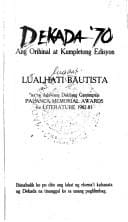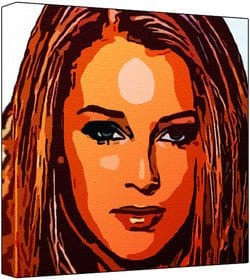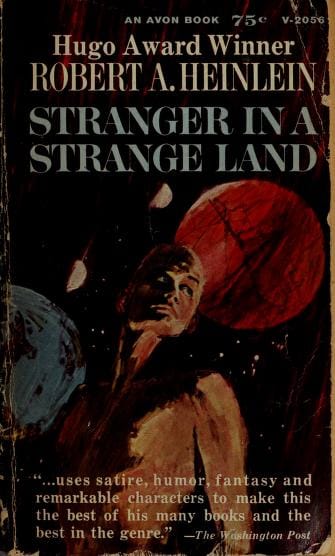Dekada '70: A Deep Dive into Lualhati Bautista’s Martial Law Masterpiece
Explore Lualhati Bautista's Dekada '70—its gripping plot, themes of resistance, and lasting impact on Philippine literature and history.

Introduction to a Modern Filipino Classic
Few Filipino novels have resonated across generations like Lualhati Bautista’s “Dekada ’70.” First published in 1983, the book tells the story of the Bartolome family as they navigate the political turmoil of the 1970s, a decade that witnessed the declaration of Martial Law and the erosion of civil liberties in the Philippines. Through its vivid storytelling, dynamic characters, and unflinching examination of authoritarianism, “Dekada ’70” has become required reading in schools and a touchstone for discussions about democracy, activism, and social justice.
Plot Summary: Life Under Martial Law
The novel centers on Amanda Bartolome, a middle-class mother of five boys whose ordinary concerns are suddenly overshadowed by sweeping political changes. Her husband, Julian, initially believes that staying apolitical will keep their family safe, but their children’s growing involvement in activism pulls the household into the vortex of national unrest. From strike actions and underground newspapers to dangerous street demonstrations, the Bartolome sons each respond differently to the regime. Amanda, once confined to domestic roles, finds her own voice and becomes an emblem of empowered Filipino womanhood. The novel culminates in tragedy and awakening when the family faces the ultimate cost of resistance—proving that neutrality is impossible in the face of tyranny.
Main Characters and Their Symbolism
Amanda Bartolome
Amanda’s transformation from hesitant observer to vocal critic mirrors the awakening of countless Filipinos who once thought politics was “men’s business.” Her inner monologues reveal suppressed frustrations with patriarchal expectations, making her a symbol of both feminist consciousness and national resistance.
Julian Bartolome
Julian represents the average citizen’s dilemma: uphold stability or challenge injustice. His gradual support for his children’s activism highlights a broader shift within the Filipino middle class during the 1970s.
The Bartolome Sons
Each son stands for a different response to oppression. Jules joins the underground movement; Gani enters the U.S. Navy seeking escape; Em becomes a student journalist combating censorship; Jason finds rebellion through rock music; and Bingo, the youngest, observes the loss of innocence. Collectively, they portray the generation’s fragmented yet passionate fight against dictatorship.
Major Themes Explored
Oppression and Resistance
“Dekada ’70” does not merely chronicle historical events; it probes the psychology of living under constant surveillance and fear. The novel illustrates how even apolitical families are forced into resistance once authoritarianism invades their everyday lives.
Family and Personal Growth
While the historical backdrop is critical, the heart of the narrative lies in the family dynamic. Bautista uses domestic scenes—kitchen conversations, school meetings, late-night arguments—to demonstrate how national issues permeate private spheres, challenging and reshaping relationships.
Feminism and Patriarchy
Amanda’s emancipation offers a layered exploration of gender roles. By breaking free from household confines, she challenges both Martial Law and patriarchal norms, asserting that true liberation must address political and gender inequalities simultaneously.
Historical Context: The 1970s Philippines
In 1972, President Ferdinand Marcos placed the Philippines under Martial Law, citing communist threats and social unrest. What followed was a period marked by media suppression, human-rights abuses, and crony capitalism. “Dekada ’70” captures this milieu with remarkable accuracy: curfews, arrests without warrants, and youth radicalization, all rendered through the lens of an ordinary family. Bautista’s firsthand experience of the era lends authenticity and urgency to the narrative, turning fiction into a powerful historical document.
Adaptations and Cultural Impact
The novel’s influence extends beyond the printed page. In 2002, Chito S. Roño directed a critically acclaimed film adaptation starring Vilma Santos as Amanda and Christopher de Leon as Julian. The film introduced the story to a wider audience, earning numerous awards and sparking renewed interest in the Martial Law period. Stage adaptations, audio books, and classroom discussions further demonstrate the text’s enduring relevance.
Why “Dekada ’70” Remains Relevant Today
In an era of rising authoritarian tendencies worldwide, “Dekada ’70” serves as both cautionary tale and source of inspiration. Its emphasis on civic engagement, press freedom, and gender equality resonates with contemporary readers facing similar challenges. By presenting activism as a family affair, the novel underscores the collective responsibility of citizens to safeguard democracy.
Tips for First-Time Readers
1. Contextualize the history: Read basic materials on Martial Law to fully grasp the stakes. 2. Pay attention to Amanda’s internal dialogue: It provides profound insight into the era’s gender politics. 3. Reflect on parallels with current events: Doing so deepens appreciation and relevance. 4. Discuss with others: “Dekada ’70” invites debate on morality, governance, and resistance.
Conclusion: A Story That Demands to Be Remembered
“Dekada ’70” endures because it captures the universal struggle for freedom and dignity. Bautista’s masterful storytelling bridges personal and political realms, reminding readers that democracy thrives only when ordinary people dare to question, to speak out, and to act. Whether you are a student of history, a lover of literature, or someone seeking inspiration to stand against oppression, “Dekada ’70” offers an unflinching yet hopeful portrait of courage in the darkest times.



